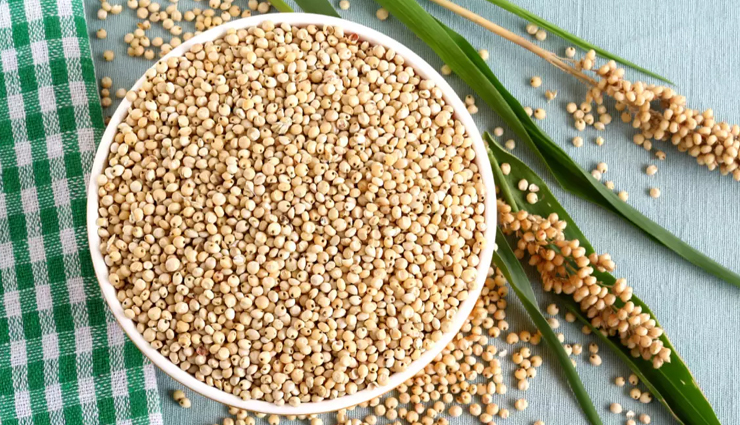- Home›
- Healthy Living›
- 10 Proven Health Benefits Of Eating Jowar
10 Proven Health Benefits Of Eating Jowar
By: Priyanka Maheshwari Fri, 12 Apr 2024 7:11:47

Jowar, scientifically known as Sorghum bicolor, is a versatile and nutritious cereal grain that has been cultivated for thousands of years, primarily in Africa and Asia. It belongs to the grass family Poaceae and is one of the top five cereal crops worldwide, alongside wheat, rice, maize, and barley. Jowar is known by various names across different regions, including sorghum, milo, and guinea corn.
This ancient grain has gained popularity globally due to its numerous health benefits and adaptability to diverse climates and soil conditions. Jowar is highly valued for its resilience to drought and heat, making it a crucial staple food in regions with arid and semi-arid climates.
In addition to its resilience, jowar is prized for its nutritional profile. It is rich in essential nutrients such as fiber, protein, vitamins, and minerals, including B vitamins, iron, magnesium, phosphorus, and potassium. Jowar is also naturally gluten-free, making it suitable for individuals with gluten intolerance or celiac disease.
Culturally, jowar holds significant importance in many societies, where it features prominently in traditional cuisines and rituals. It is used to make a variety of food products, including flour for flatbreads, porridge, fermented beverages, and snacks.
# Rich in Nutrients: Jowar is packed with essential nutrients like fiber, protein, vitamins (B vitamins, particularly niacin and thiamine), and minerals (iron, magnesium, phosphorus, and potassium). These nutrients are vital for maintaining overall health and well-being.

# Gluten-Free: Jowar is naturally gluten-free, making it an excellent alternative for individuals with gluten intolerance or celiac disease.

# Supports Digestive Health: The high fiber content in jowar aids digestion by promoting regular bowel movements, preventing constipation, and supporting a healthy gut microbiome.

# Regulates Blood Sugar Levels: Jowar has a lower glycemic index compared to other grains, meaning it causes a slower and steadier increase in blood sugar levels. This makes it a suitable choice for individuals managing diabetes or those looking to control their blood sugar levels.

# Heart Health: The fiber, potassium, and antioxidants present in jowar contribute to heart health by lowering cholesterol levels, reducing blood pressure, and supporting overall cardiovascular function.

# Weight Management: Jowar's high fiber content promotes a feeling of fullness, which can help control appetite and aid in weight management.

# Boosts Energy: Jowar is a good source of complex carbohydrates, providing a steady release of energy, making it an ideal choice for maintaining energy levels throughout the day.

# Antioxidant Properties: Jowar contains antioxidants like phenolic compounds and flavonoids, which help protect cells from damage caused by free radicals and reduce the risk of chronic diseases.

# Bone Health: The magnesium, phosphorus, and calcium in jowar contribute to bone health, supporting bone density and strength.

# Anti-inflammatory Properties: Some research suggests that certain compounds in jowar may have anti-inflammatory properties, which could help reduce inflammation and associated health risks.





